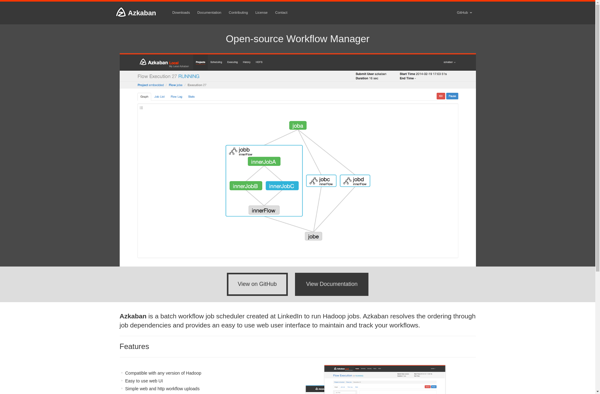Luigi
Luigi is an open source Python package that helps you build complex pipelines of batch jobs. It handles dependency resolution, workflow management, visualization, handling failures, command line integration, and much more.
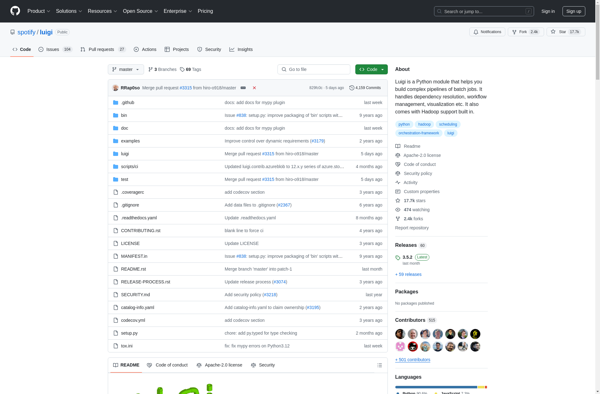
Luigi: Open Source Pipeline Management
Luigi is an open source Python package that helps you build complex pipelines of batch jobs. It handles dependency resolution, workflow management, visualization, handling failures, command line integration, and much more.
What is Luigi?
Luigi is an open source Python package that helps you build complex pipelines of batch jobs. It handles dependency resolution, workflow management, visualization, handling failures, command line integration, and much more.
Some key features of Luigi:
- Built on top of Python, so it is easy to integrate into your existing Python workflows and codebases
- Dependency resolution - Luigi helps manage the dependencies between tasks in your workflow so they run in the correct order
- Scheduling - Luigi has built-in scheduling that determines what tasks need to run and handles batching up tasks for better performance
- Failure handling - Luigi helps you deal robustly with failures, retries of tasks, and avoids re-running successful tasks
- Visualization - Luigi provides visualization of workflow diagrams to help you monitor status
- Command line integration and parallel execution - Luigi makes it easy to run workflows from the command line, run tasks in parallel, and scale up
- HTTP server - Luigi has an integrated web server for managing and visualizing workflows
Some common use cases for Luigi include data pipelines, machine learning workflows, extract-transform-load (ETL) pipelines, and more. It's used at many companies to build complex batch processing workflows.
Luigi Features
Features
- Dependency management
- Centralized workflow management
- Failure handling
- Visualization
- Command line integration
- Support for local and remote workflows
- Integration with Hadoop
Pricing
- Open Source
Pros
Open source and free
Simple and flexible architecture
Active community support
Scalable for complex pipelines
Built-in retry mechanisms
Visual workflow representation
Integration with many languages and frameworks
Cons
Steep learning curve
Limited documentation
No graphical user interface
Not ideal for real-time data processing
Requires coding pipelines in Python
Official Links
Reviews & Ratings
Login to ReviewThe Best Luigi Alternatives
Top Development and Workflow Management and other similar apps like Luigi
Here are some alternatives to Luigi:
Suggest an alternative ❐Apache Airflow
Apache Airflow is an open-source workflow management platform created by Airbnb in 2015. It is used to programmatically author, schedule and monitor workflows. Airflow provides a graphical interface to visualize pipelines, dependencies between tasks, and monitor the workflow.Some key features and benefits of Apache Airflow include:Directed Acyclic Graphs (DAGs) -...
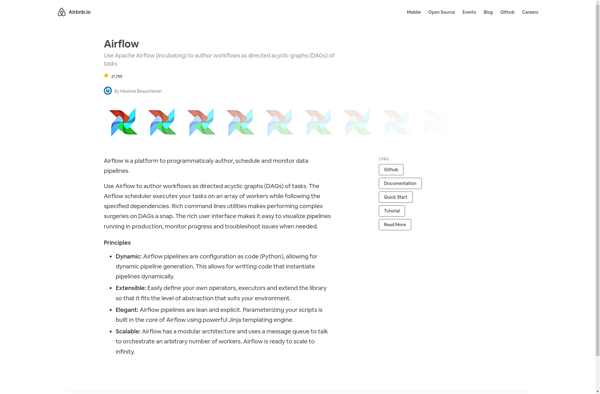
Zenaton
Zenaton is an open-source workflow orchestration platform that allows developers to code any complex business process in code. It handles asynchronous tasks, priorities, scheduling, errors and more out-of-the-box allowing developers to focus on implementing the business logic rather than building custom workflow engines.Key features of Zenaton include:Model workflows in code...
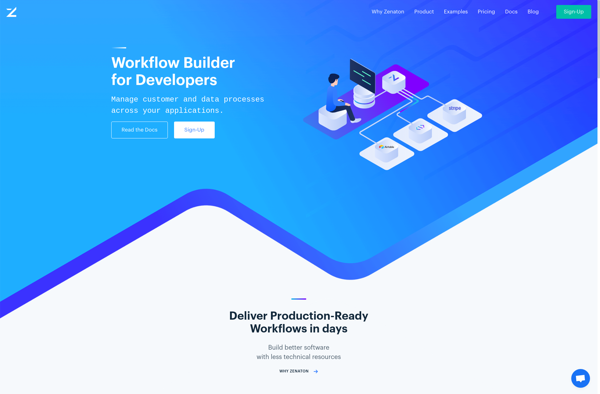
Kestra
Kestra is an all-in-one digital marketing platform created specifically to meet the needs of marketing agencies and entrepreneurs. It brings together essential tools like analytics, lead generation, email marketing, landing pages, and more onto a single platform to streamline marketing campaigns.Some key features of Kestra include:Integrated website analytics to track...
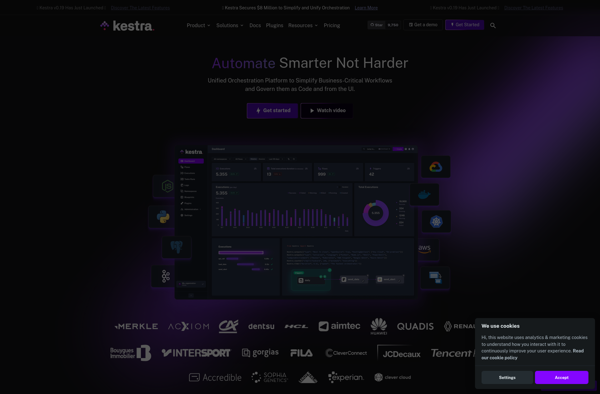
Metaflow
Metaflow is an open-source Python library that helps data scientists build and manage real-life data science projects. It provides an easy-to-use abstraction layer for data scientists to develop robust and reproducible pipelines, track experiments, visualize results, and deploy machine learning models to production.Some key features of Metaflow include:Simplified pipeline construction...
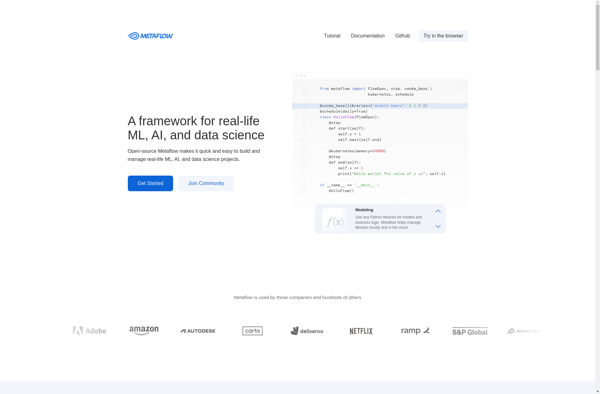
Apache Oozie
Apache Oozie is an open source workflow scheduler system to manage Hadoop jobs. It is designed to run workflow jobs which represent a directed acyclic graph (DAG) of actions. Oozie workflows are written in hPDL (a XML Process Definition Language) and runs job instances based on the workflow definitions.Key capabilities...
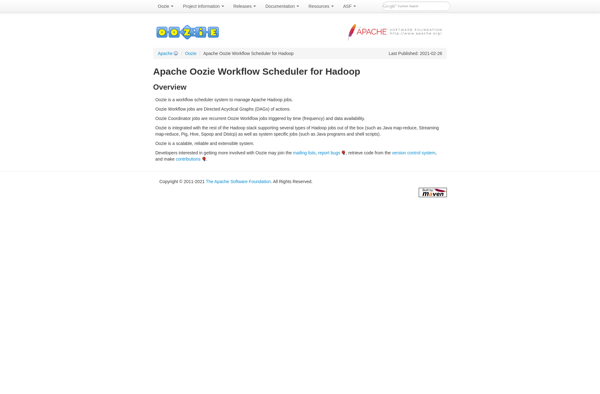
StackStorm
StackStorm is an open-source event-driven automation platform for auto-remediation, security responses, troubleshooting, and more. It provides integration with common infrastructure components and easy ways to trigger automated workflows based on system events. Key features include:Flexible workflow engine based on automation actions to trigger responses and remediationsIntegration with monitoring tools, infrastructure,...
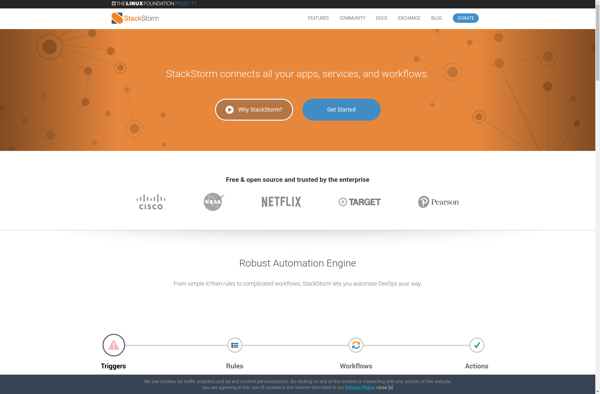
Shipyard - Data Orchestration
Shipyard is an open source data orchestration and workflow automation platform designed to help teams easily build, schedule, orchestrate and monitor pipelines. It provides an intuitive graphical interface to visualize your data pipelines and comes with over 300 pre-built components and templates.Key capabilities and benefits:Graphical pipeline designer to visually create...
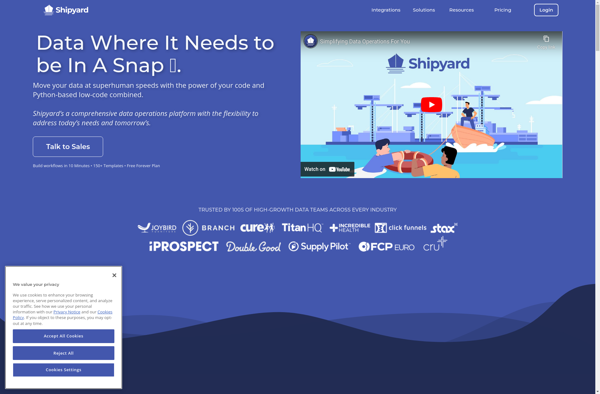
Azkaban
Azkaban is an open source batch workflow job scheduler created at LinkedIn in 2012. It is used to schedule and run Hadoop jobs, manage dependencies between jobs and prevent jobs from failing or running simultaneously. Azkaban provides an easy to use web user interface to create and schedule workflows and...
